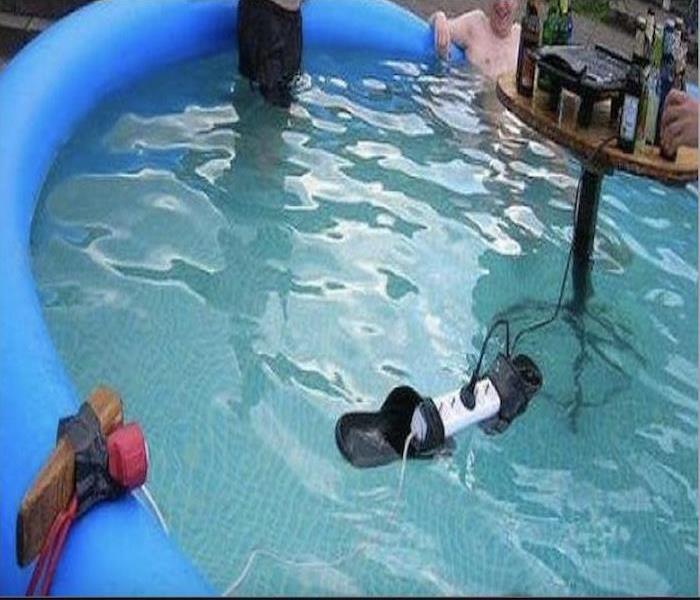Electric Safety at Home
6/10/2022 (Permalink)
The importance of electrical safety at home is often taken for granted. Ignoring electrical safety instructions may put your safety and property at risk. Let us all do our part to contribute to a safe and accident-free environment as follows:
- Swimming Pools—do not use electrical appliances near pools; do not route extension cords in the vicinity of pools; do not raise pool maintenance or rescue poles into overhead power lines.
- Outlets—look for outlets that have loose-fitting plugs, exposed wires, or broken plates and have them fixed by a qualified Electrician. Use safety covers on all outlets accessible to children.
- Surge Protectors—only use surge protectors with internal circuit breakers. To prevent overheating, these units will trip the breaker if the power strip is overloaded or shorted to prevent overheating. Do not plug a surge protector into an existing surge protector. Unplug the unit when the surge protector is not in use.
- Cords—do not place appliance cords where they will come into contact with the stove or other heated surfaces. Do not hang appliance cords over countertops where they might be accidentally pulled down.
- Frayed Appliance Cords—worn or frayed appliance cords can cause fire, electric shock, and even electrocution. As a basic home safety procedure, inspect cords regularly to assess wear and replace cords as required.
- Boats—keep boat masts away from power lines.
- Space Heaters—read all manufacturer instructions before use, and keep heaters away from furniture, curtains, sinks, tubs, and water. Do not lay rugs or carpet over the cord. Do not use heater if the cord is frayed or broken, and do not use an extension cord. Turn off heater before leaving home or going to bed.
- Ladders—exercise caution when using ladders, painting, pruning, or cleaning near a service drop where the wiring comes into a house or building at the meter. Weatherproofing on the overhead wiring is not insulation. This covering can become brittle, cracked, and expose you to electrical contact.
- Trees—do not climb trees near power lines. Keep balloons, kites, fishing lines, and aluminum poles away from overhead lines. The lines are uninsulated and you could create a path to the ground by touching them.
- Meter Boxes—ensure safe and easy access to your meter box; do not fence in meter boxes, use private locks on meter boxes, or surround meter boxes with trees and shrubs. Keep dogs safely secured away from your meter box.
- Shoes—avoid damp or wet areas when using electrical power tools outdoors. Wear sturdy, rubber-soled shoes when working with electrical appliances outdoors. NEVER use electrical equipment when barefoot.
- Utility Poles—do not swing, climb, or run into guy wires supporting utility poles. Report damaged guy wires to the power company.







 24/7 Emergency Service
24/7 Emergency Service
